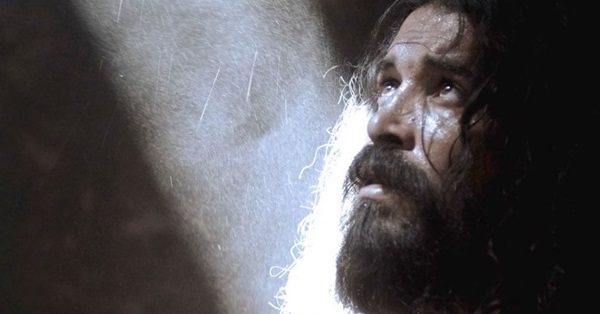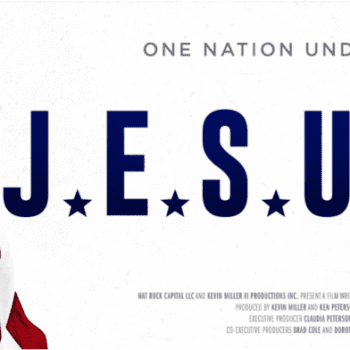 Pastors have a frequent question when they begin to discover mimetic theory. “That’s great. But how does it preach?”
Pastors have a frequent question when they begin to discover mimetic theory. “That’s great. But how does it preach?”
Reverend Tom Truby shows that mimetic theory is a powerful tool that enables pastors to preach the Gospel in a way that is meaningful and refreshing to the modern world. Each Wednesday, Teaching Nonviolent Atonement will highlight his sermons as an example of preaching the Gospel through mimetic theory.
In this sermon, Tom points to the Advent message that, “The redeemed are those learning how to live without destroying anyone.” This changes our view of the Messiah, ourselves, and God. It puts us on a path that moves away from violence and towards forgiveness.
Year A, Advent 3
December 11th, 2016
Thomas L. and Laura C. Truby
Matthew 11:2-11, Luke 1:46b-55 and Isaiah 35:1-10
Good Christian Friends, Rejoice!
John the Baptist is deeply troubled, he is not sure that Jesus is the Messiah after all. He’s thinking about it in prison, running over it in his mind, again and again. Is Jesus the Messiah or is he not?
Being in prison, his frustration and anger toward the political-economic establishment that locked him up here is on the increase. In the wilderness away from people and competing voices he could hear the quiet voice of God but here amid the intrigue and anxiety of prison life, the voice he heard in the wilderness had lost its vibrancy and doubts had sprung up.
He could be executed any day at the whim of Herod. It’s time for the Messiah to get moving; maybe his movement would be soon enough to save John the Baptist’s life. On the other hand, maybe Jesus wasn’t the Messiah. Jesus’ actions don’t seem consistent with what a messiah should be doing. John sends his disciples to ask Jesus, “Are you the one who is to come, or should we look for another?”
Jesus responds, “Go, report to John what you hear and see.” He doesn’t answer directly to justify himself. He lets actions speak. Then he quotes the prophet Isaiah who centuries before described the coming Messiah as the one from whom “the blind receive their sight, the lame walk, the lepers are cleansed, the deaf hear, the dead are raised, and the poor have good news brought to them.”
Every proof of his being God’s chosen involves compassion and healing rather than judgment and condemnation. And the recipients of this healing are those ordinarily dismissed; the ones usually excluded by the religious. John said the coming Messiah would bring fiery judgment with pitchfork in hand and ax laid at the root of the tree. Jesus demonstrates none of this hard and condemning spirit. No wonder John the Baptist wonders if Jesus really is the Messiah.
Then Jesus adds this strange tag line, “Happy are those who don’t stumble and fall because of me.” John has stumbled over what Jesus is doing. Jesus has gotten soft! You don’t help people by being soft do you? You help people by being hard, tough and fearful so that they will buck up and try harder. It was Jesus’ “soft” behavior that did not fit John the Baptist’s expectations. It was Jesus’ compassion and kindness that caused John the Baptist to stumble.
Jesus says to John the Baptist, “Remain open. Don’t write me off because I don’t do what you think I should. Don’t be scandalized by my compassion. It has a power that will astound you.”
As the delegation from John departs, Jesus speaks to the crowds about John. These crowds were the same people who had gone into the wilderness to see John. Jesus asks them what they had gone out into the wilderness to see; reeds waving in beautiful patterns and rattling in the wind. No! Had they gone out to see satin and silk worn by royalty? Not at all!
They had gone out to see an exciting prophet who would lift them from their lethargy! They knew he was radical, hard, disciplined and extreme, and that’s why they were attracted to him. They wanted swords, lines in the sand, clearly defined distinctions between good and evil. They were looking for a super-prophet, someone who would sound the alarm and lead the charge. If that’s what they were looking for, would they be open to Jesus? Or would they, too, be put off by Jesus’ message and life?
Jesus tells them if they had gone out to see a super prophet they had seen one and more. He was more than a prophet because he not only looked toward a new age; he also participated its coming, even though he didn’t understand how this would work. John the Baptist prepared the way for Jesus by putting a dramatic period at the end of the sentence called the age of the prophets. The One who came after him would be something new, something never before seen in history.
John the Baptist, the messenger sent ahead of Jesus was a fiery man bearing a message of “vengeance with terrible recompense.” His words make people’s hearts tremble. And though John’s words were hot they were also cold and harsh, causing people to pull their cloaks more tightly around them. Like the cold winds in the dead of winter, his words had people clinging to their winter coats more tightly.
By contrast, Jesus judges no one, heals the broken, and lifts up the lowly. He absorbs the full force of human resistance and does not retaliate. In fact, where John envisions the ax, Jesus becomes the tree cut down by the ax. Where John pictures the winnowing fork separating wheat from chaff, Jesus becomes the chaff that burns in the fire of human wrath.
John prepares the way for Jesus by standing in contrast so that all can see the difference more clearly. Jesus brings the warming wind of forgiving love that eases our burdens and erases the walls separating the rich from the poor and the arrogant from the lowly. At God’s announcement of his coming, Mary, who cannot contain her joy, breaks into song. “With all my heart I glorify the Lord! In the depths of who I am I rejoice in God my savior. He has looked with favor on the low status of his servant. Look! From now on everyone will consider me highly favored because the mighty one has done great things for me. Holy is his name. He shows mercy to everyone, from one generation to the next.”
On the third Sunday of Advent, the focus is always joy. Isaiah’s text for the day promises that, “waters shall break forth in the wilderness, and streams in the desert.” Ancient intuition predicted there would be a great reversal; something dramatic would spring out of what appeared dead and hopeless. There would be a breaking forth of new life and it would be where it was least expected. The least expected place in all creation turned out to be in the poverty of a teenage girl named Mary and the weakness of a cross outside Jerusalem.
For Isaiah, images of lushness bursting out where it is the driest occur on a highway called “the Holy Way.” The Holy Way is God’s way of reconciling the human species to himself through his forgiveness mediated by Jesus, His Son, our Lord. Isaiah’s poetic image goes beyond the comprehension of its writer. While it says, “the unclean shall not travel on this road,” what if the unclean refers to the chaff that is burned and not to persons from whom the chaff has been separated? That’s the difference between John the Baptist and Jesus. One divides and destroys, while the other reconciles and includes. That’s why Jesus says “I assure you that no one who has ever been born is greater than John the Baptist. Yet whoever is least in the kingdom of heaven is greater than he.”
All this burning of chaff occurs by God’s initiative and has already happened at the crucifixion and resurrection. The life of a Jesus-follower is not about cleaning up our act. It’s about embracing an event that has already occurred. And this highway of forgiveness meant for all God’s people includes all people who now or have every inhabited planet earth.
On this highway of forgiveness, there are no predators, no one sustained by destroying another. The redeemed are those learning how to live without destroying anyone. No wonder “Happiness and joy will overwhelm them; grief and groaning will flee away.”
Mary’s joyful and passionate song celebrates almighty God who will work these wonders through her Child. This is the message of the Magnificat. On the third Sunday of Advent we sing “Good Christian Friends, Rejoice with heart and soul and voice.” Our Lord is coming. Amen.
Image: John the Baptist in Prison (freebibleimages.org)
Stay in the loop! Like Teaching Nonviolent Atonement on Facebook!















